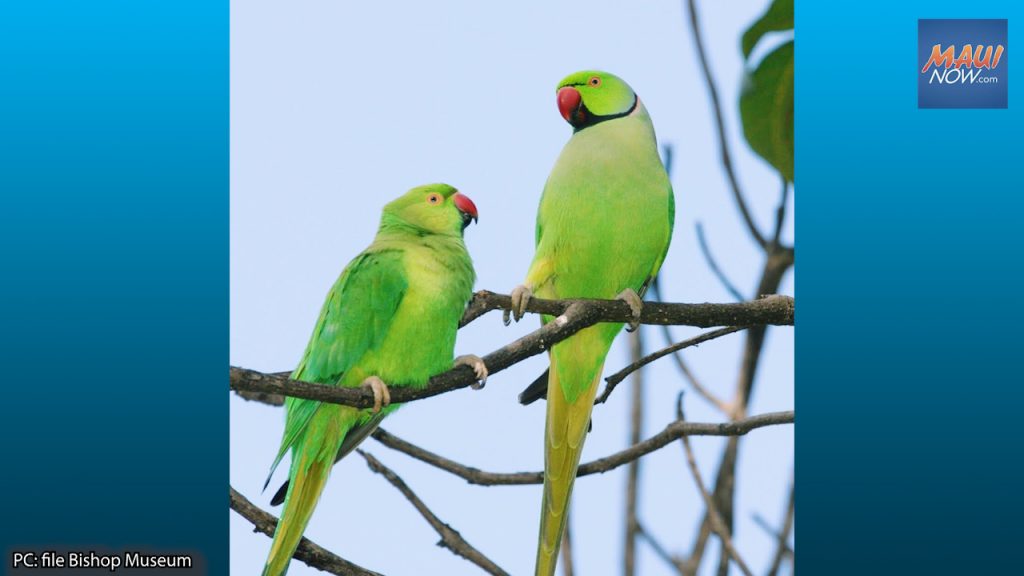New Invasive Species, Rose-Ringed Parakeets Found on Maui

Rose-ringed parakeets or RRP have recently been confirmed on Maui. One bird was captured in Kīhei as a result of an online report to www.643PEST.org, and follow up by an interagency team.
At least four more birds remain un-captured in West Maui. These four birds were reported by a Nāpili resident who observed them frequenting a bird feeder.
Follow-up visits by staff from the Maui Forest Bird Recovery Project confirmed their presence. Efforts were made to capture these remaining birds on July 30; however, the birds were not observed and are assumed to have moved on to another feeding location.

The interagency effort is being conducted by the Maui Invasive Species Committee, Hawaiʻi Department of Agriculture, Department of Land and Natural Resources Division of Forestry and Wildlife, Maui Nui Seabird Recovery Project, and Maui Forest Bird Recovery Project.
Not to be confused with the Rosy-faced Lovebird, which is already established on Maui, Rose-ringed parakeets are native to equatorial Africa and Asia and have invasive populations in over 35 countries. There are established populations of RRP on Oʻahu, Hawaiʻi Island, and Kauaʻi. MISC representatives say they are an agricultural pest that causes extensive damage to food crops, especially fruits and grains. On Kauaʻi, they have already successfully invaded farmland and have caused significant losses to harvests.
“Their high-density roosts, loud calls, and mass accumulation of droppings cause disturbance to humans and are a potential public health risk. If they reach native forests, their impact on native ecosystems could be substantial,” according to MISC.
The most recent population estimate of Kauaʻi RRP numbers is over 10,000 individual birds, with the rate of expansion steadily climbing along with costs to control them. The Kauaʻi Invasive Species Committee, in partnership with the Rose-Ringed Parakeet Working Group, is conducting research to develop management methods to mitigate these pests.
MISC is asking the Maui community to help in early detection efforts by reporting any sightings of these few remaining birds. Report any sighting of Rose-ringed Parakeets on Maui to www.643pest.org or call 808-643-PEST (7378). Questions may be directed to miscpr@hawaii.edu.









